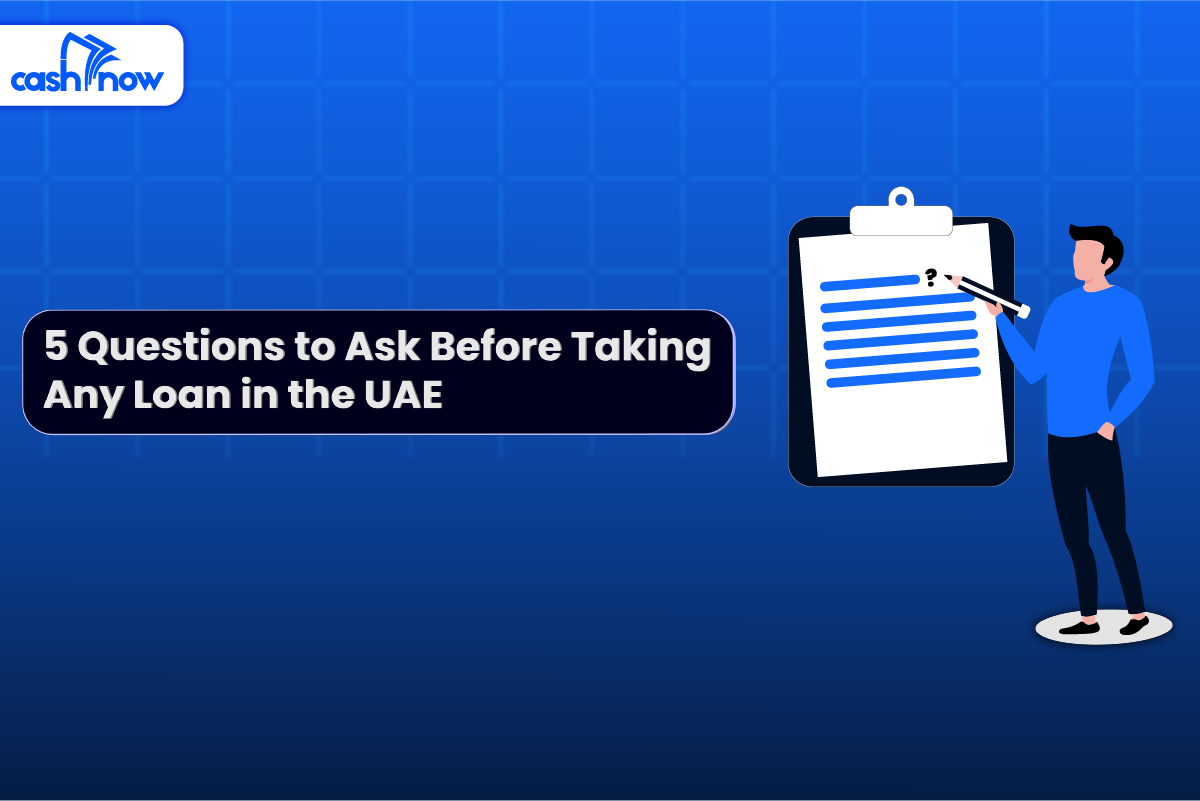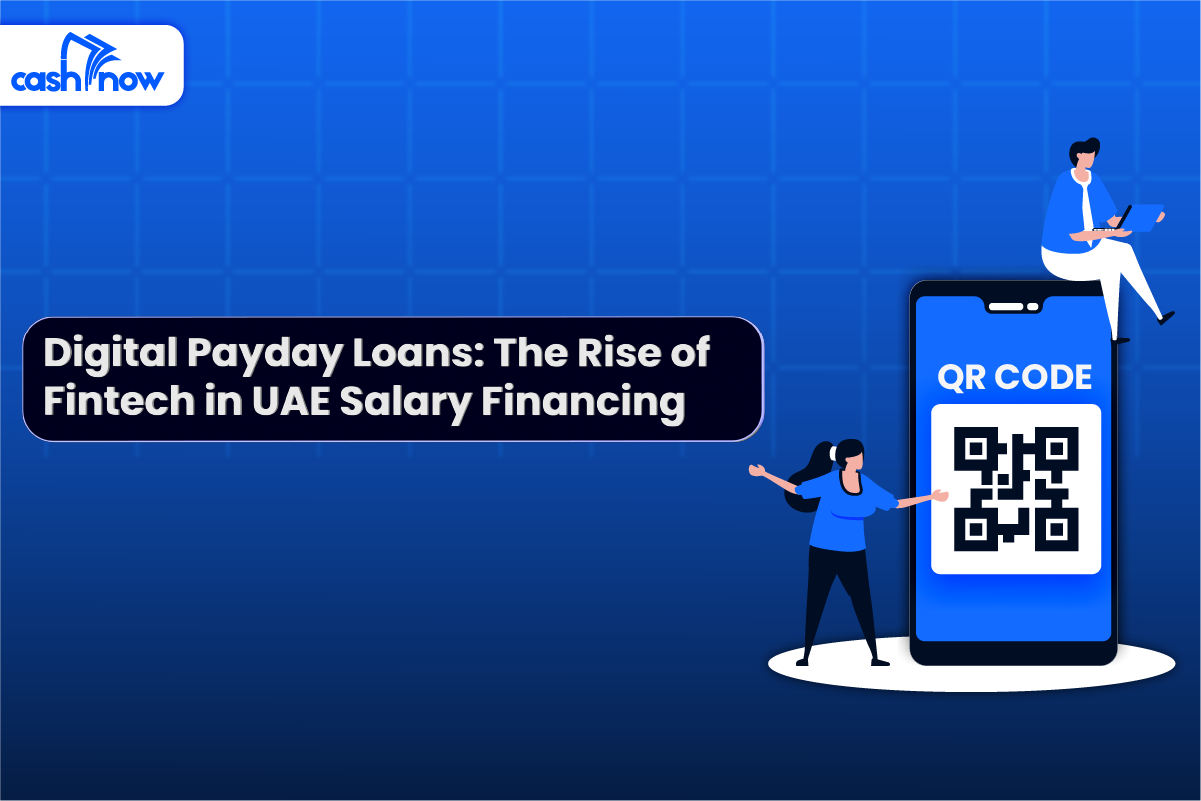Small Loans for Delivery Drivers in UAE: What to Know

Gig work offers freedom, but for many drivers, it comes at the cost of financial stability.
The gig economy is booming in the UAE, with thousands of individuals working as delivery drivers for platforms like Talabat, Deliveroo, Careem, and others. These roles offer flexibility, daily earnings, and quick entry into the workforce, but often come with financial uncertainty.
When emergencies strike, many drivers find themselves locked out of traditional lending systems.
Delivery drivers earn variable incomes depending on order volumes, shift availability, and peak-hour incentives, none of which qualify as formal income proof for banks. As a result, they are excluded from financial assistance when they need it.
The inconsistency in their earnings, combined with high living costs, unexpected emergencies like vehicle maintenance needs, often leads to short-term financial stress, and that’s when small loans become a practical lifeline.
Why delivery drivers in the UAE seek small loans
Delivery jobs offer independence and the promise of immediate income, but the financial instability that comes with them is something few are truly prepared for.
Earnings are far from steady. Even minor changes in demand, weather conditions, app algorithms, or the number of active riders can cause daily income to swing drastically. One day might bring in more than enough, while the next could leave a driver struggling to cover basic expenses, making it nearly impossible to build a financial cushion.
What adds to the challenge is that drivers often bear out-of-pocket costs just to keep working, like bike repairs, license renewals, fuel, or unexpected fines. And when a bike breaks down or insurance lapses, it’s not just a cost issue. It means going off the road for days, with earnings dropping to zero.
Small loans act as a crucial buffer during these times, offering quick access to funds that help cover emergencies without forcing drivers to turn to high-interest lenders or lose income due to downtime.
Types of small loans available for delivery drivers
Here are a few different types of small loans that delivery drivers in the UAE can obtain depending on the driver's employment status, documentation, and credit history:
Personal loans from banks
Personal loans may look like the best bet for delivery drivers because they offer lower interest rates and longer repayment terms. But, they also have clauses on stable salaried income, a high minimum salary, usually AED 5,000+, and a strong credit history, which can be difficult for the delivery drivers to match.
Microloans or payday loans from FinTech platforms
Because personal loans have lately developed a track record of denying delivery drivers financial assistance, FinTech lenders have come up with microloans and short-term payday loans, specifically for the gig workers.
These loans are often easier to apply for, require minimal documentation, and focus more on alternative data like recent app earnings or delivery volume than traditional credit scores. This makes them a popular and more realistic option for many delivery drivers.
Salary advance loans via aggregators or employers
Some delivery platforms or logistics companies, i.e., the employers, have multiple employee wellness benefits that include the salary advance scheme that allows workers to access a portion of their earnings before payday. It isn’t really a “loan,” but it serves the purpose of providing immediate funds to meet urgent needs.
These are typically interest-free but have transaction fees and may come with usage limits or conditions based on tenure and performance.
Eligibility criteria for delivery drivers in the UAE
Here are the eligibility criteria imposed by both the traditional financial institutions and new-age FinTech platforms that offer small loans in the UAE:
Valid Emirates ID and residency visa
An Emirates ID is a must to prove residency and be eligible to get a loan in the UAE. A valid Emirates ID and visa are non-negotiable, as they establish the borrower’s identity and eligibility to work in the country.
Proof of income
Salary is the widely accepted proof, but since most delivery drivers are not salaried employees, they have to furnish proof of consistent income instead, like bank statements or screenshots of weekly/monthly earnings from delivery platforms like Talabat, Deliveroo, or Careem.
Minimum monthly income threshold
Beyond the proof of consistent income, most lenders require the income amount to reach a bar of AED 3,000 or AED 5,000, depending on the lender. It is for security reasons and to assess whether the borrower will be able to repay the loan. FinTechs, on the other hand, are quite flexible, so a consistent gig activity would suffice.
Alternative proof for gig workers
Pay slips or employment contracts are the standard documents required, which the gig workers lack. To help them access funds, modern fintech lenders may accept alternative documentation such as app-generated earnings summaries, delivery logs, or e-wallet histories tied to rider accounts.
Cashnow – A microloan platform designed for gig workers
Cashnow is a leading modern FinTech platform in the UAE that accommodates the gig economy with funds, especially when traditional financial institutions fail them. Its instant microloan product is designed to help delivery drivers navigate irregular income, emergency expenses, and limited access to traditional financial services.
Cashnow fills the financial gaps left by banks when they deny gig workers access to credit, making borrowing more inclusive, easier, and quicker.
Unlike banks that require salary certificates, high minimum income, or lengthy approvals, Cashnow requires minimal documentation, i.e., just an Emirates ID and proof of delivery income.
More than just access, Cashnow focuses on timing. When emergencies hit, drivers can rely on instant approvals and rapid disbursals to avoid disruptions to their livelihood.
Finally, what sets Cashnow apart is its customer-first approach. The entire experience is streamlined through a user-friendly mobile app, allowing riders to apply anytime, from anywhere. Instead of traditional credit scores, the platform evaluates real-time earnings and app activity.
How to apply for a small loan with Cashnow as a delivery driver
Cashnow offers a streamlined process tailored for gig workers, including delivery drivers, to access instant microloans. Here's how you can apply:
Step 1: Download the Cashnow App available on both the Google Play Store and the Apple App Store.
Step 2: Register and verify your identity using your mobile number and a valid Emirates ID.
Step 3: Select a loan amount you wish to lend and a repayment term, depending on your needs and eligibility.
Step 4: Enter your UAE bank account IBAN or opt to receive funds via your Botim wallet.
Step 5: Review all details and submit your application through the app.
Step 6: Most applications are approved within minutes, and your funds are disbursed directly to your chosen bank account or Botim wallet, typically within 24 hours.
Step 7: Repayments are to be made through the app, with clear schedules and due dates provided.
What are the alternatives to small loans
While small loans can offer quick relief during a financial crunch, they’re not the only option available to delivery drivers in the UAE. Here are some alternatives to be aware of:
Savings plans through companies
Some logistics firms or delivery aggregators offer structured savings programs that deduct small amounts from earnings each month. These plans help drivers build a financial cushion over time, reducing the need for emergency borrowing.
Salary advances from employers or platforms
Some employers or agencies that employ drivers offer financial products like salary advances. Their riders can get access to a portion of their upcoming pay early, often without interest. While not all platforms offer this, it’s worth checking with your coordinator or HR department.
Community lending groups (Co-ops)
People from some particular nationalities form a community lending group and pool money together, and offer loans to the members in need. These co-ops often operate on trust with minimal interest, but they require regular participation and contribution.
NGO or charity assistance
Multiple charities and non-profits exist in the UAE to assist low-income workers with urgent medical bills, accommodation issues, or family emergencies. Organizations like Emirates Red Crescent or community welfare arms of embassies may be able to help in specific situations, especially for workers facing severe hardship.
Conclusion
Managing day-to-day expenses on an unpredictable income is tough and an everyday reality for delivery riders who deserve better.
When life and finances get tough, a little help via small loans can go a long way for them, especially when used responsibly. Small loans offer a much-needed financial cushion, helping riders stay on the road and support their families without falling behind.
However, not all loans are made equal and accessible.
Traditional banks often overlook the unique needs of gig workers, making access to timely financial support unnecessarily difficult. But, FinTech platforms like Cashnow have now stepped in.
Cashnow understands the financial challenges of gig workers like delivery drivers and offers quick, flexible, and low-barrier microloans that are designed specifically for the realities of gig work.




.webp)
.webp)



